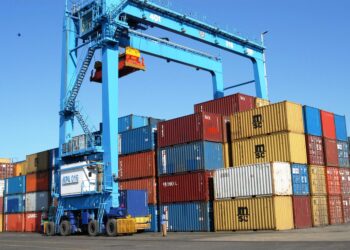The European Union (EU) has announced its commitment to allocate 150 billion Euros by 2027 as part of its Global Gateway Initiative.
This initiative aims to bolster infrastructure across more than eight sectors in Nigeria and various other African nations.
The EU Commissioner for International Partnerships, Jutta Urpilainen, made this known during the launch of the Global Gateway initiative on Thursday in Abuja.
According to Urpilainen, the Global Gateway initiative revolves around augmenting connectivity, advancing sustainable development, and fortifying economic linkages between the EU and its partner nations, Nigeria included.
She stated that the EU’s initiative aimed to bolster Nigeria’s infrastructure connectivity, spanning transport, energy, and digital networks, while also providing support for agriculture, economic growth, health, and education.
- “It will also promote sustainable development and environmental protection, and foster cooperation and partnerships with Nigeria and other partner countries.
- “We are living in an increasingly fragmented world. The war that Russia started against Ukraine last year, the military takeover in Niger in July, and the escalation in Israel-Palestine conflict, are just stark reminders of that.
- “In such a world, the Global Gateway strategy is our positive offer to build resilient connections in the world through strategic partnerships to jointly address the challenges of our times from fighting climate change to improving health systems,” she said.
- “Together, we intend to mobilise 300 billion Euros in investments by the year 2027, and half of them for Africa; it is 150 billion Euros by the year 2027; Nigeria features prominently in the Global Gateway investment package,” she said.
Telecos, Energy Assistance
Furthermore, Urpilainen emphasized the EU’s dedication to aiding Nigeria’s 5G expansion, with a focus on strengthening the country’s digital economy.
Simultaneously, discussions are ongoing regarding a potential loan to support Small and Medium Enterprises (SMEs) operating in the digital and print sectors.
In addition, she emphasized that the EU has dedicated financial support to enhance the energy sector, which includes the creation of small-scale grids and modest hydroelectric power stations, catering to both public needs and productivity.
She pointed out that the EU has allocated financial assistance to strengthen the energy sector, involving the setup of mini grids and small-scale hydroelectric plants to serve public and productive needs.
- “In 2022, we launched a digital economic package for Nigeria. With EU and European Investment Banks, investments worth 820 million Euros, it is a lot of money.
- “We are already supporting the roll out of digital IDs nationwide, mobile network expansion with MTN in Lagos and other states.
- “We are also about to launch the construction of a line between Katsina and Daura twin lines, and we are proposing to reinforce the Nigeria-Benin interconnection of the framework of the West African power pole” she said.
More Insights
Speaking further, Urpilainen said that education is the most transformative investment anyone could make so an empowerment project is being launched in Northwestern Nigeria in cooperation with government to promote quality basic education in the northern regions.
She said Nigeria is also a major beneficiary of the student mobility and higher education cooperation project under Erasmus+ with more than 2,020 students from Nigeria granted scholarships for studying in the EU in 2022.
The EU is committed to a long-term partnership with Nigeria under the Global Gateway to achieve shared goals and objectives.
- ” The EU’s long-term commitment will see investments into the following sectors of the country: Agriculture (€42,000,000), Energy (€37,000,000), Health (€45,000,000), Digital (€55,000,000), Education (€45,000,000), and Social Protection (€46,000,000),” Urpilainen added.























